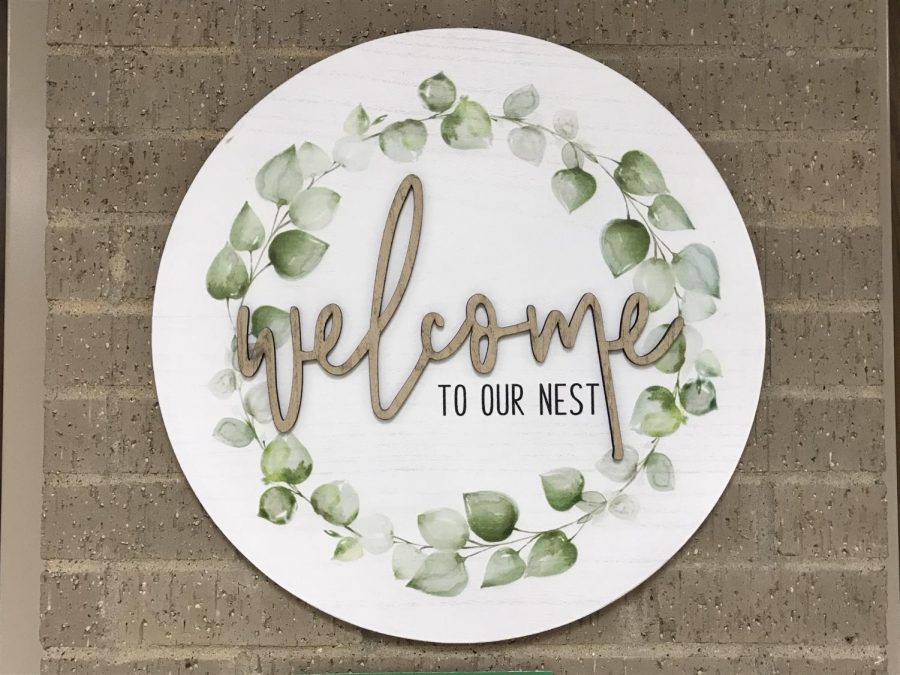Eagles Experience Emotional Help
In order to better help with the emotional needs of their students, Lake Ridge Counselors created the NEST room.
High school is a place where a teenager’s behavior is most influenced, whether the influence is from peers, teachers or counselors. A school’s approach on how to support students’ mental health varies a great deal across the country. At Lake Ridge there are multiple approaches taken by teachers and counselors.
School guidance counselors have specific duties at Lake Ridge. Student Support Counselor Lori Cook feels that Lake Ridge’s NEST room, which is deemed Lake Ridge’s “calm down” room with several objects meant to help students regain composure, offers students a chance to ease their mental state during school.
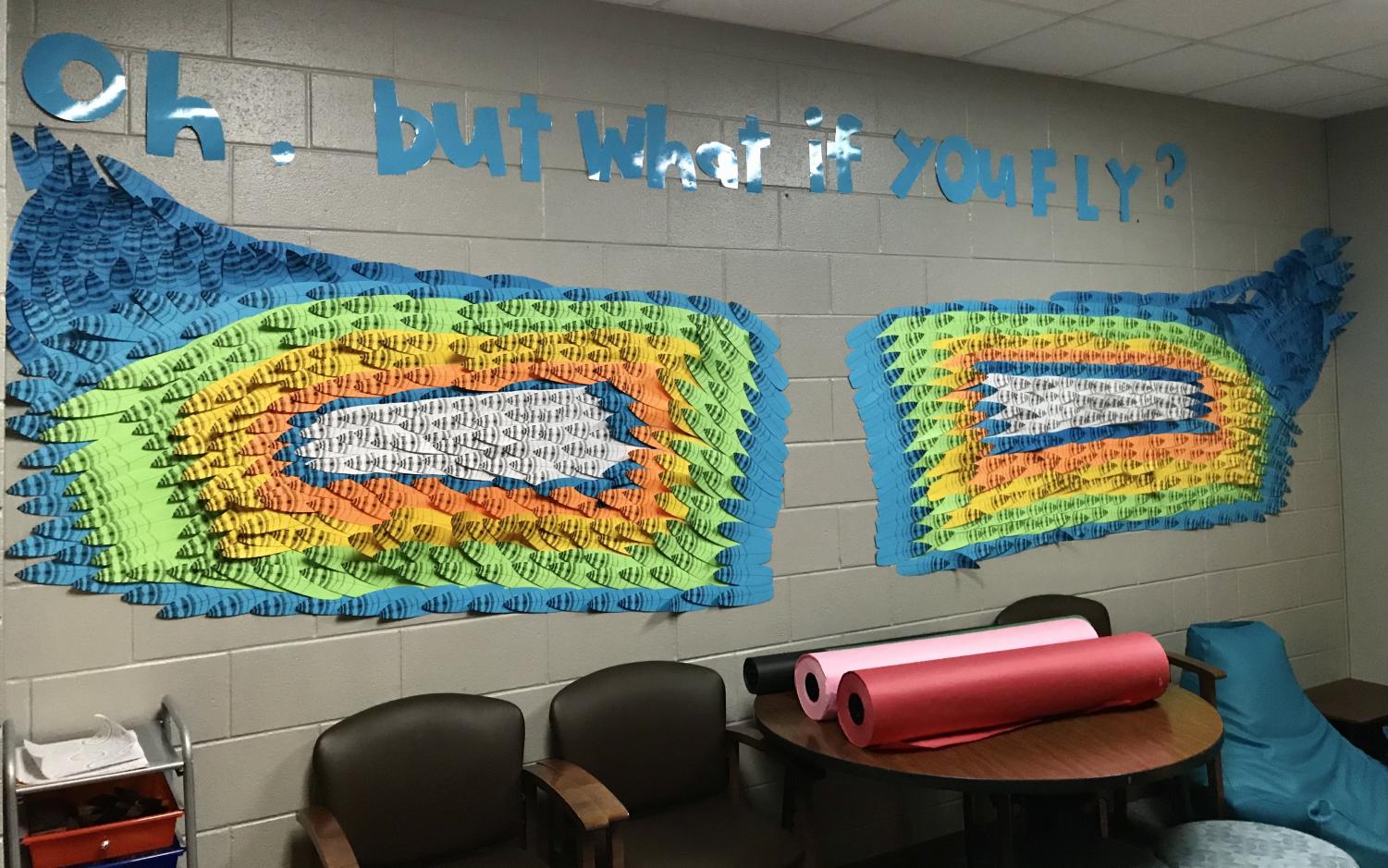
“Any student has access to mental health counseling, we have what’s called the NEST which is like an office in the very front of the counseling office. In that room we have weighted blankets, we have fidget toys, we have kinetic sand, crayons, map pencils and colors. We have a lot of different toys and different meditation type things, we have a lot of sensory objects, we have quite a few things we developed last year. That’s kind of our “calm down” room,” stated Cook.
Cook explained that students have permission to take a short break from class to go to the NEST.
“If kids that are in class, need a couple minutes to just calm down for a minute, maybe they don’t even need to see the counselor, they just need a place to go and chill for a few minutes to kind of regroup and get themselves together and maybe go back to class. We have that area that’s available to all students. Most of the teachers are aware that we have the NEST and are very understanding, ” said Cook.
Cook has the opportunity to see and work with several students a day and she has noticed a recurring trend when speaking with students. She pointed out that students tend to be more open with school counselors rather than parents, the reason being a parental lack of objectivity. 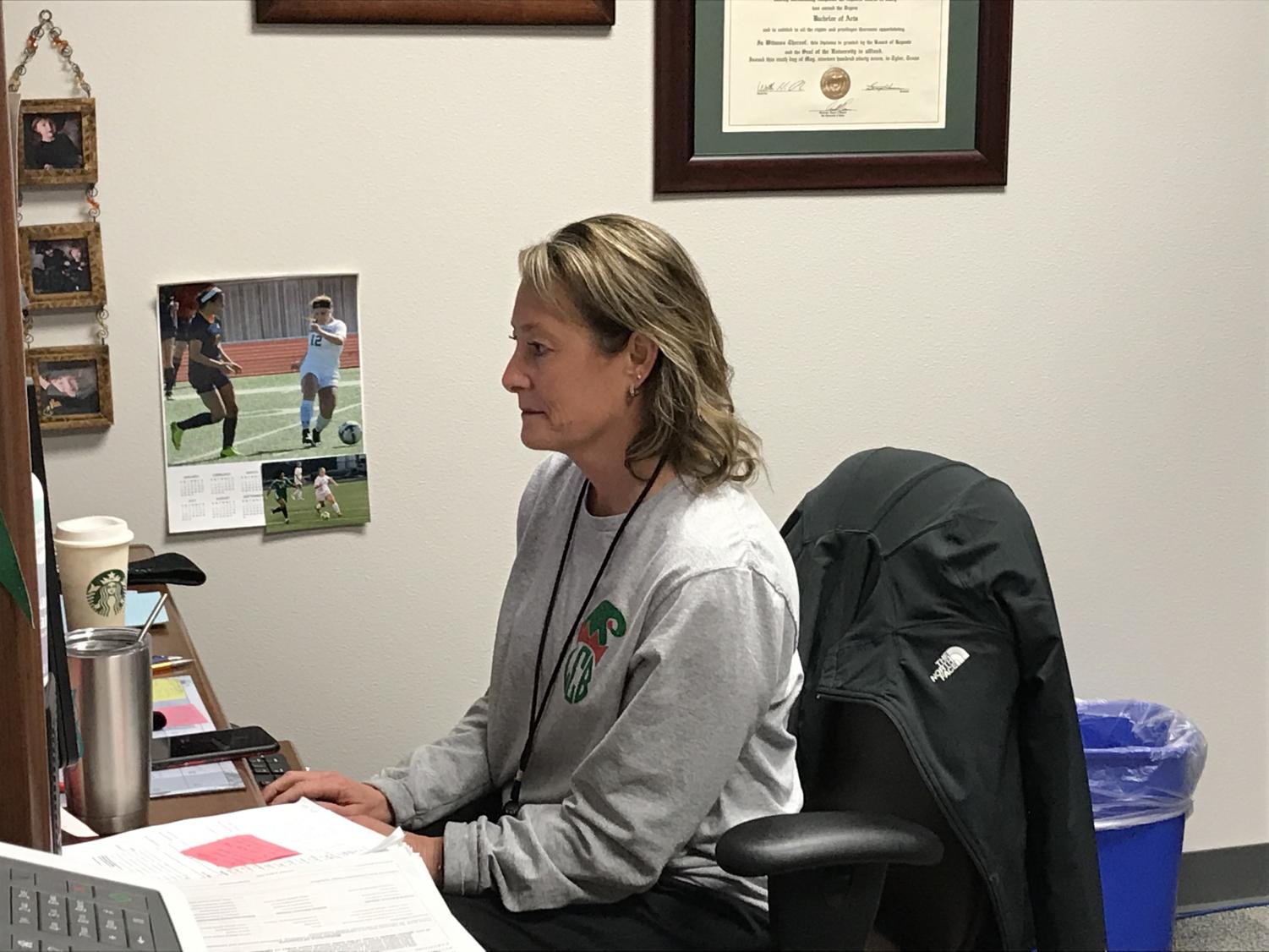
“I think that’s not because parents don’t wanna listen, but it’s because counselors at school are much more objective, I mean we’re not emotionally connected to the situation whereas parents are emotionally connected. And whenever kids are talking to their parents, they’re always worried about how they’re gonna respond to it, are they gonna be upset, are they gonna be mad? Sometimes they don’t wanna add to the stress that they’re parents are already dealing with. They’re trying to guard their parents’ emotions, they’re trying to protect their parents. It’s always easier to go to somebody who is maybe one step removed from what’s going on,” explained Cook.
While it may be easier for some to talk to counselors, Cook understands the underlying fear students have of their conversations not staying within the counselor’s room. And while Cook can empathize with their desire for privacy, there are certain rules she, as a licensed therapist, must follow.
“There are certain absolutes that we have to tell kids upfront no matter what. With confidentiality, what we talk about, stays between you and I with an exception to certain things. If they tell me they’re being abused, I have to call CPS, that’s a state law. If a student tells me they’re suicidal, then I have the duty to warn and I have to call a parent. And if they tell me they’re gonna go home and hurt somebody or hurt themselves then I have the duty to warn,” stated Cook.

The NEST is still a very new concept at Lake Ridge since being established at the beginning of the last school year. Junior Bianca Olivares believes the NEST room is a great improvement for providing support for Lake Ridge students and overall feels like she does have support if needed.
“The NEST room is a really good improvement. I think they do a pretty good job, I’ve heard from some friends that have reached out to counselors and had positive experiences. And the NEST room sounds promising, in that students have a place where they can calm down if they’re having an attack or something like that,” said Olivares.
Approaches to students’ mental health support can be greatly influenced by their learning environment and psychological reasoning. Psychology Teacher Heather Willson believes that cultural acceptance is increasing a great deal at Lake Ridge.
“I believe students are expressing their feelings more openly now than ever before. There is cultural acceptance today that allows freedom of not only feeling a full range of emotions, but expressing them. That being said, we are a product of our environment and are influenced by those around us. No one thing is the sole determinant in any one person’s actions, it is a summation of the whole,” stated Willson.
In a perfect world, there is an ideal environment for students to properly develop emotional stability in one’s educational surroundings, Willson believes applying psychologist Erik Erikson’s theory of psychosocial development can help build a supportive environment for students.
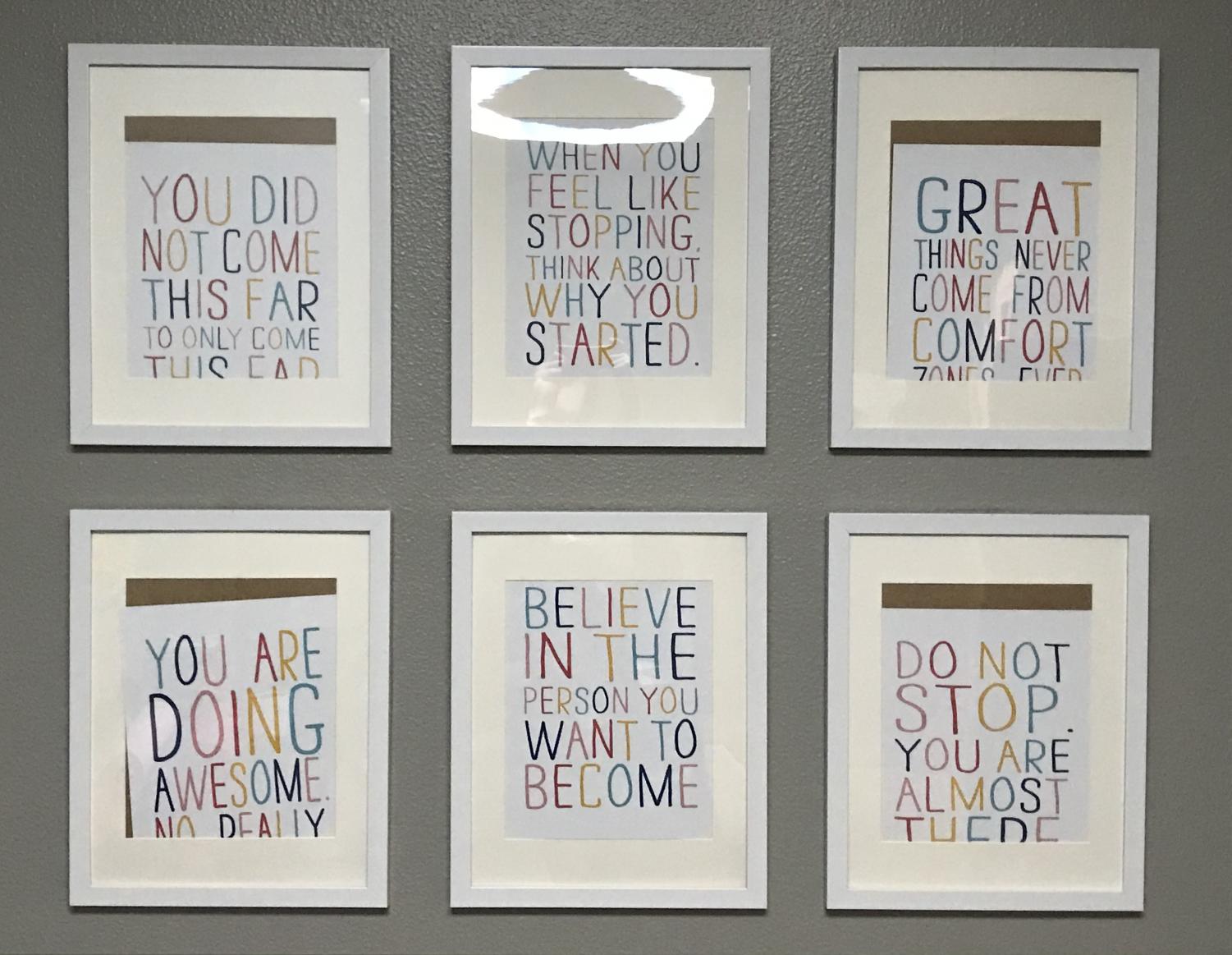
“In that theory, he explains that we develop at different levels at different times in our lives. The ability to define emotions when we’re young, and aspire for greatness when we’re older. We develop the ability to define emotions when we’re young and how to express them soon after. The ability to work with those emotions comes later which is why being a teenager can be very frustrating and emotional – it’s a skill that is being learned at this point. That being said, we learn these skills not only from our schoolmates, but our families, our community, our fellow religious members, social media, etc. If there is a delay in learning to identify emotions when we’re children, there is a delay in the other skills,” said Willson.
Family and Consumer Science Teacher Marisa Bonner, has experienced how difficult it can be to effectively use time and patience to develop relationships based around mental health in the first place.
“Establishing relationships has definitely been harder to do with virtual classes. With in-person, I feel like it’s just taking longer to establish those relationships because we started remotely and they didn’t know each other or me so they weren’t as comfortable as they are in the classroom setting,” said Bonner.
Bonner has always felt comfortable being transparent about her emotions, she uses her own life experiences as a way to encourage others to be just a bit more open and to feel less isolated.
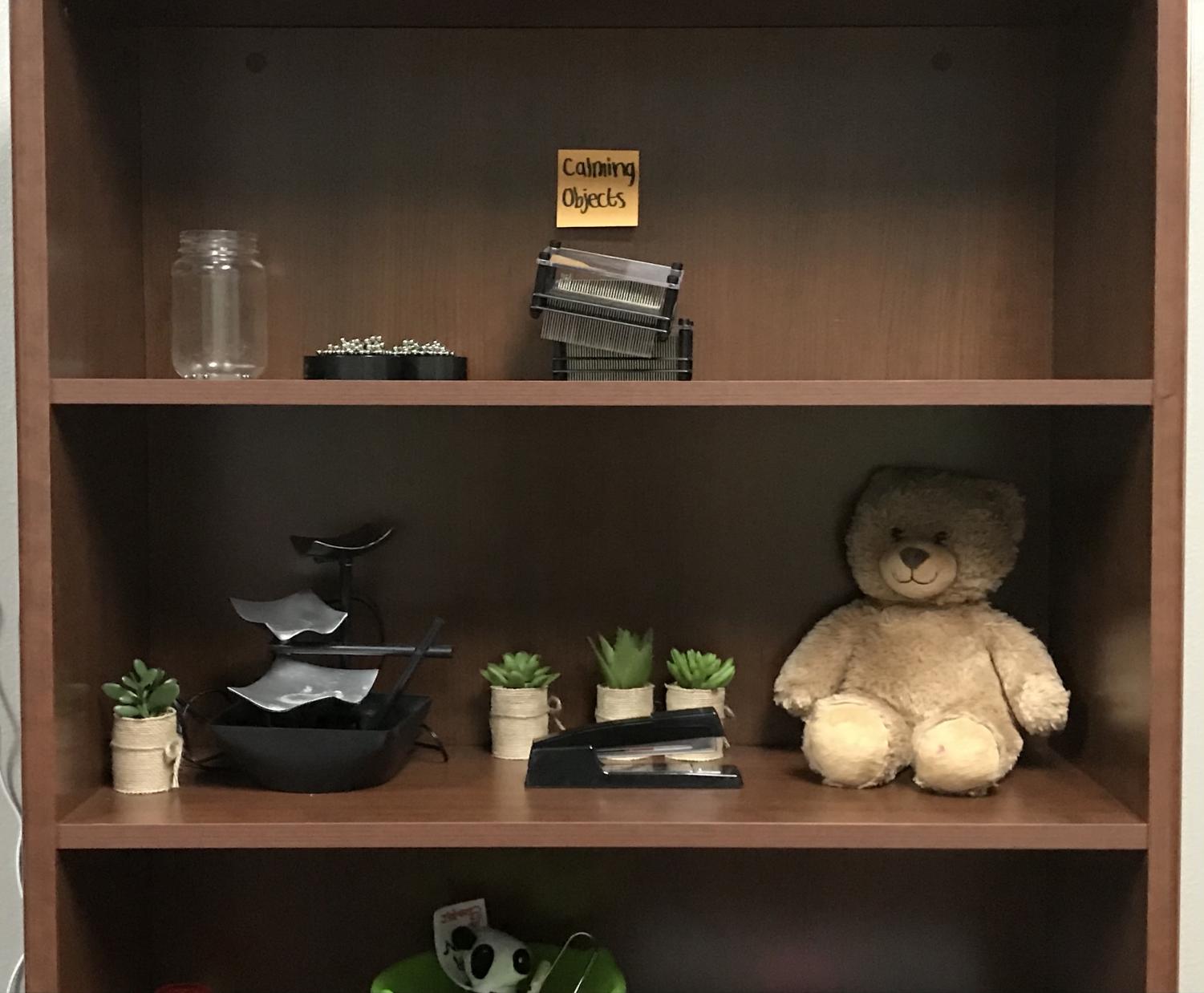
“I’m always pretty transparent, it’s not anything I’m ashamed or embarrassed about. I know from personal experience the worst part of mental health struggles is that feeling of being alone because no one really talks about it so if talking about it makes one person feel less alone or maybe helps others empathize, I will continue talking about it,” stated Bonner.
Knowledge about mental health is sourced by experience, Bonner has been volunteering with Crisis Text Line, a non-profit organization dedicated to providing free mental health service through SMS messaging, giving her a new perspective on students’ mental health.
“For almost 2 years, it’s helped me gain perspective as to what students are going through and helps me see the big picture and realize I don’t know everything they are dealing with. What may seem like a minor crisis to me, is something major to them because of everything else going on in their life. There are also a ton of really cool resources I’ve learned about through CTL that I’ve been able to suggest to students,” said Bonner.
Teachers have been able to gain knowledge and understanding of students’ struggles by reflecting on their own past. Director of Theatre, Cara Cook has been able to develop multiple relationships with students based on shared experiences in theatre and education. As she is able to connect with her students over the years, Cook has been able to adjust her teaching to be more aware in order to accommodate those struggling.
“I have become more aware of how stress can impact how people hear and how people absorb information. And so, I have had to approach instruction in a different way in order to try to make teaching more effective when I see those signs from kiddos who I think may be overwhelmed or may be overworked,” stated Cook.
Cook believes giving support to Lake Ridge students and to be emotionally available to them requires time and patience.
“You have to build trust first. You have to listen, you have to care about someone before they can trust you to speak to them. Most people aren’t just gonna tell you how they really feel, especially if they don’t think it matters to you,” said Cook.
Lake Ridge is taking several steps towards providing support to its students and faculty, however there will be some things nobody can prepare for.
“A stable, consistent learning environment is ideal and the best option but I feel like it’s also really important for students to learn how to cope with changes in an appropriate way. Reality is things aren’t always stable and consistent. Life is going to throw you curveballs and you have to know how to deal with it,” stated Bonner.

